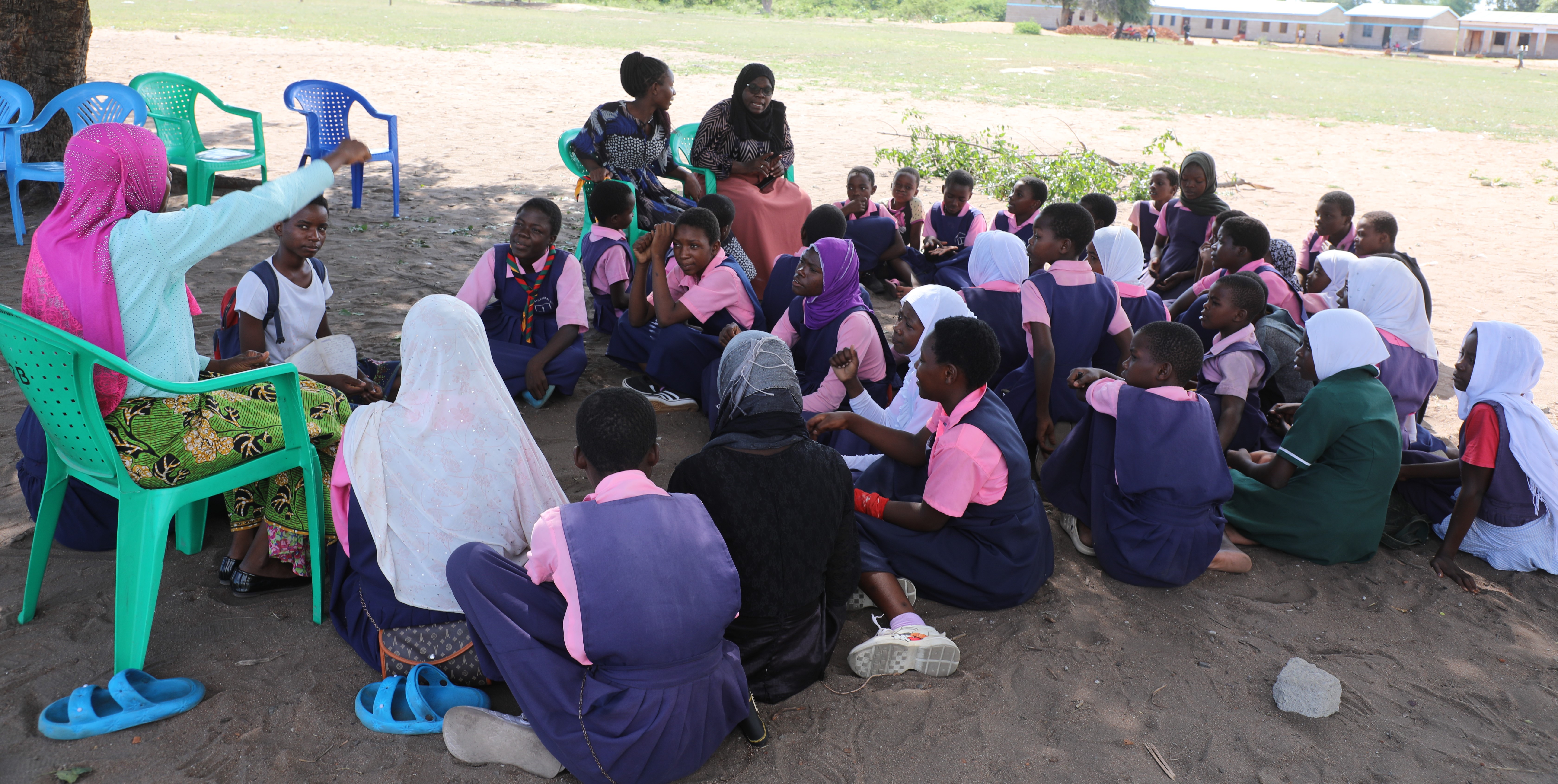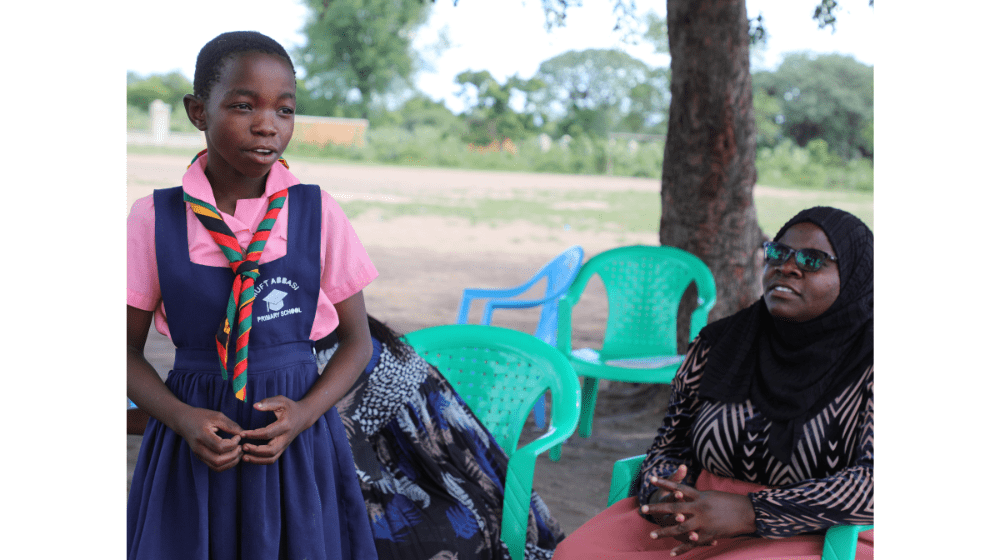Mangochi, Malawi - At first glance, 12-year-old Shakira Levison wasn't sure about joining the safe space. "I didn’t know what to expect and was a bit shy," she confesses. But curiosity sparked by a friend's enthusiasm nudged her to take the leap.
"I got curious because my friend was always excited to go to the safe spaces after classes," Shakira shares. "And my first day was full of fun. The mentor helped me to settle and we played many games and the sessions were educative."
For Shakira, who often struggled with self-confidence in class and received poor grades, the safe space offered a transformative experience.
She said:
I always was getting positions with double figures. But my friends in the safe space were doing well. So, I knew that if I joined, I could benefit from whatever they were learning.
Established last year under the UN Joint Programmes on Girls Education and funded by the Government of Norway, the Mufti Abbasi safe space is one of the initiatives implemented by UNFPA in Mangochi. The program aims to improve the access, quality, and relevance of education for girls by addressing key threats such as poor nutrition, inadequate protection against violence, low-quality schooling, harmful social practices, and violations of girls’ sexual and reproductive health rights.
The safe space at Mufti Abbasi school is divided into three groups based on the ages of the girls. This division allows the mentors to impart age-appropriate sexual and reproductive health information to the young girls.
“Since we started the safe space, we can see some positive changes in the girls as absenteeism has reduced,” says Ms. Maimuna Chindamba, who is one of the two mentors at the school. “One of the challenges the girls’ faced was on how to manage their menstrual health. Through the project, we are sewing reusable pads that are helping the girls to manage their menses well and also keeping them in school.”

Mangochi district has a largely youthful population, with 55 percent of the population below the age of 18. However, the district has poor indicators on sexual and reproductive health, with many women aged between 15 to 24 having their sexual debut before the age of 15.
This has contributed to high teenage pregnancies, leading to many girls dropping out of school. The safe spaces are bridging the information gap on sexual and reproductive health, helping adolescent girls access the right information about their bodies.
Amina Manosi is 15 years old. Before joining the safe space, she relied on her friends for information especially on personal hygiene and menstrual health management.
“In our culture, a girl is supposed to openly talk about menstruation,” says Amina. “And this sometimes makes it hard for many girls to seek for information. Instead, we just keep in doors during the menses, which made me loose much in terms of learning.”
The safe space has brought significant change for Amina.
“Since I joined the safe space, I have learnt how so make my own pads,” she says. “I can also easily reach out to my mentors at the safe space for advice if I have problems about anything that relates to my life or school.”
Joseph Scott, Communications Analyst


